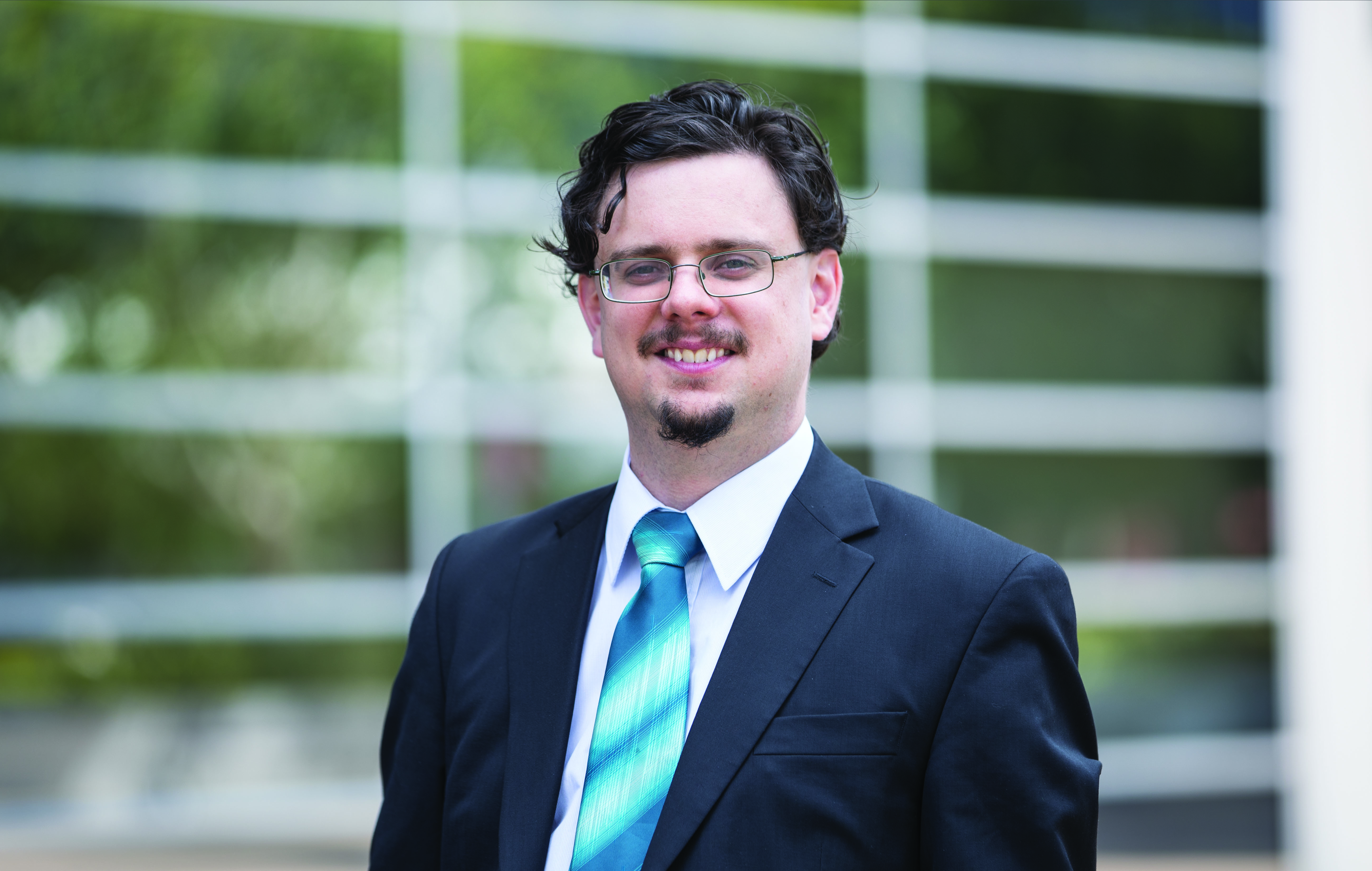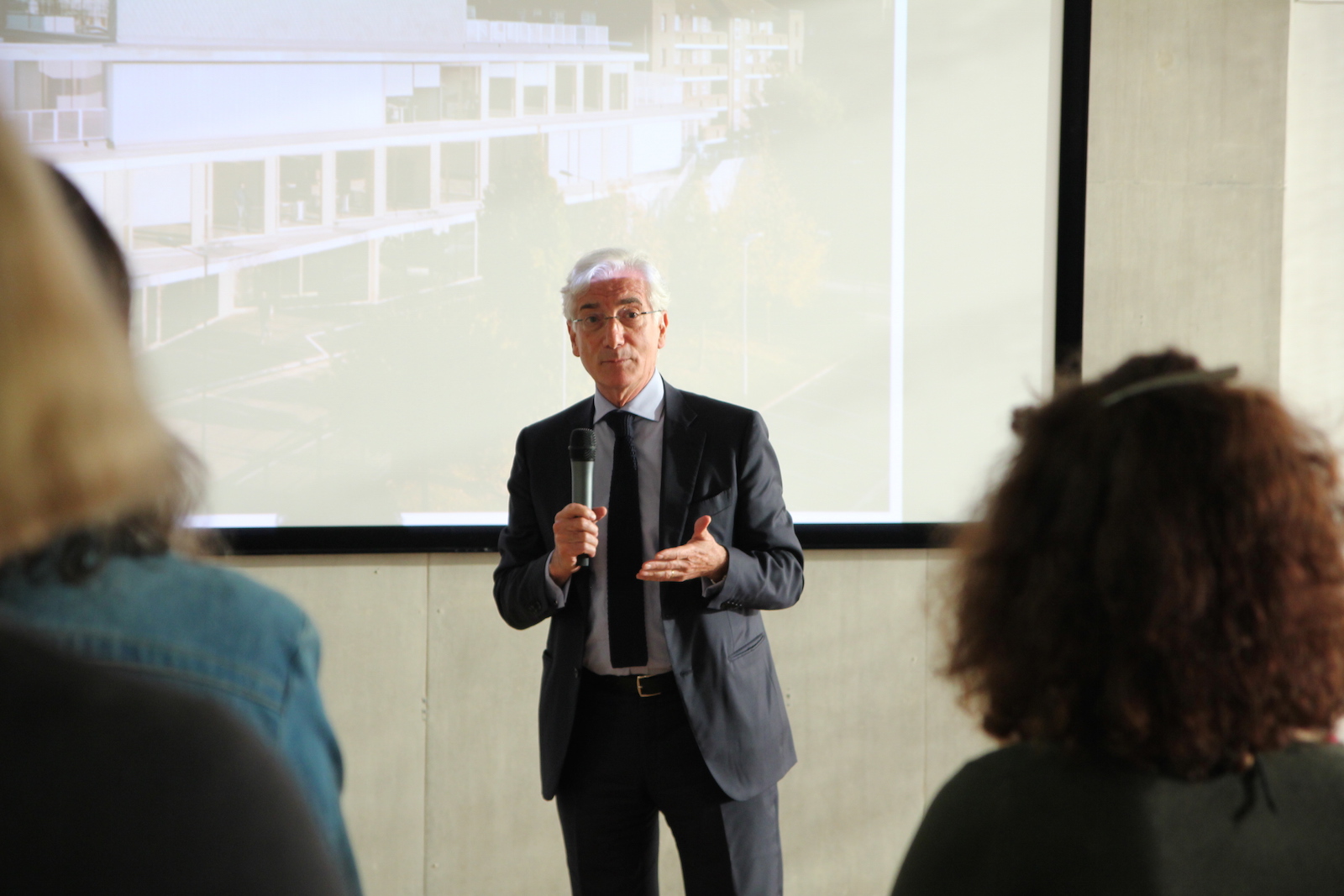GSG Honours celebrate growing players in impact investing
Winners draw our attention, which is why awards and contests and prizes have proliferated madly in our attention-challenged world.
And so, this week’s awards at the GSG Impact Summit in Chicago will draw attention to winners of the first GSG Honours among the growing number of players in the emerging industry of impact investing.
But pay attention as well to the second part of the GSG Honors for Entrepreneur, Asset Owner, Asset Manager and Market-Builders … of the Year. That second part — “of the Year” — signals the remarkable acceleration in impact investing even in the last 12 months.
The shift in private capital toward valuing positive social and environmental impact is a bright spot at a time when the world has been rattled by protectionism, populism, geopolitical conflict and retreat from global and regional agreements.
Sir Ronald Cohen (pictured above), the legendary British venture capitalist, predicts a 2020 tipping point, at which time even legacy investors will have added impact to risk and reward as a core component of financial decision-making.
Across different sectors of the global financial markets, this year’s honorees “are leading efforts to direct capital and innovation to tackling social and environmental issues, which is fundamental if we are to address the massive challenge facing billions of people across the world,” said Cohen.
He is chair of the awkwardly named GSG, shorthand for the Global Impact Investing Steering Group, an umbrella for the national-level advisory boards originally convened by the (then) G8 in 2013. In Chicago, the 16 official delegations in have been joined by representatives from more than two dozen other countries.
The GSG partnered with ImpactAlpha to recruit and review nominations for the first GSG Honours; winners were selected by a panel of judges led by Cohen. The more than 150 overwhelmingly stellar nominations testified to the depth of talent, innovation and persistence among impact investing’s first-movers and early adopters.
Tapping capital
Capital markets don’t build themselves. That private investors and entrepreneurs are stepping up to such challenges is a function of the hard work of thousands of agents of impact across geographies, asset classes and stages of market-development. The winners in the four categories below each stand in as proof points for dozens or hundreds of their partners and allies.
At the GSG’s last meeting, in Lisbon last year, Nick O’Donohoe, now the head of the U.K. development finance agency CDC Group, said early gatherings had been “more rhetoric than reality.”
He challenged practitioners to tap public debt and equity markets in addition to private-equity and donors, and to tackle bread-and-butter social issues like access to education, housing, health and energy to demonstrate that market-based solutions can generate genuine impact.
As demonstrated by the nominees for GSG Honours, entrepreneurs, asset owners, asset managers and a growing network of market-builders took up the challenge. The thread running through the entire batch of nominations was of a field not only confident, but competent, in their abilities to structure business and financial vehicles that deliver “impact alpha” — outsized financial or impact returns — or both.
Financial products and capital flows are becoming institutionalised and standardised, from Philadelphia-based community-development bank The Reinvestment Fund’s oversubscribed public bond offering; to Australian pension fund Christian Super’s growing impact allocation; to IIX’s successful offering of a Women’s Livelihood Bond on the Singapore Stock Exchange.
The increasingly rich impact investing ecosystem is typified by Intellecap, which is building funds, support, and gatherings for entrepreneurs and businesses serving the “other three billion,” including Rajeev Kher, founder of the 3S India.
Entrepreneur of the Year
Rajeev Kher (3S India): Delivering dignified sanitation through technology and finance.
Rajeev Kher was introduced to portable toilets as a way to dramatically improve the lives of everyday Indians as a management intern in North America. Last year, his company, 3S India, founded in 1999, provided 5,000 toilets to 10 million people at events, social and religious gatherings and construction sites, in slums and communities, and in disaster management areas in six major Indian cities and nine states — and managed 155 million liters of liquid waste.
Kher’s target users: the nearly half India’s population that defecate out in the open, without access to a safe and sanitary toilet. 3S India is piloting new mobile toilets designed specifically for women to increase access and safety of public toilets.
The customers for 3S’ recyclable-material constructed sanitations are municipalities, construction companies and event- and large pilgrim-site management firms. Key to its growth: technology, which enables users to locate the nearest toilet, 3S to monitor and service its units and locate and dispose of waste. Impact investments from India-based Avishkaar and ResponsAbility in Zurich let Kher and 3S take on a global problem in a local context. Next up: Expansion to 15 cities by 2020.
Asset Owner of the Year
Christian Super: Leading institutional investors toward impact investing.
Christian Super is a small pension fund, managing AU$1.3 billion (US$ 990 million) on behalf of 25,000 members. But it has a big commitment to social impact, allocating 10% of its assets to impact investing, as well as screening all investments for environmental, social and governance, or ESG, risk.
“We are often challenged with questions as to whether it’s actually possible as a fiduciary to build a viable impact portfolio, but I think that our 10 year track record is sufficient to dispel that myth,” Tim McCready, Christian Super’s chief investment officer, told ImpactAlpha.

Performance of the impact portfolio has exceeded performance benchmarks, returning 6.7%, at lower risk than other assets, except cash. With that record, Christian Super is increasing its impact allocation to 12%.
Among its investments are Patamar Capital, formerly Unitus Impact, which is investing in improved livelihoods in Southeast Asia and an IFC fund-of-funds for low-carbon power generation and water conservation. “We have argued firstly that you can find attractive risk-return characteristics in at least parts of the impact investing space,” McCready (pictured above) has written. And “impact investing offers substantial diversification benefits when placed in a portfolio which is largely invested in equities and bonds (uncorrelated sources of return).
Asset Manager of the Year
The Reinvestment Fund: Tapping the public bond market for low-income community development.
The Reinvestment Fund’s successful $50 million bond offering signaled the arrival of a new source of capital for childcare centers and charter schools, grocery stores and health clinics, energy efficiency upgrades and small businesses in low-income communities across the U.S.
Anonymous private investors bought the Philadelphia-based community-development finance institution’s S&P-rated, unsubsidized bonds on the open market. “I have speculated and fantasized about real access to the capital markets for decades,” Hinkle-Brown told ImpactAlpha.
This year, The Reinvestment Fund expects to finance 1.3 million in commercial square footage, capacity for an additional 175,000 patient visits, 600,000 new megawatt-hours of clean energy production and other projects in low-income communities in 10 states plus the District of Columbia. The bond followed a similar offering from the Local Initiatives Support Corporation(LISC), another community development finance institution, or CDFI.
As a sector, CDFIs have around $108 billion in assets. “This opens up the door to underserved communities having more access to the global capital markets,” says Mark Zandi, vice chair of Reinvestment Fund’s board of directors and chief economist at Moody’s, another investment rating agency.
Field Builders of the Year
Intellecap: Building businesses that serve the world’s emerging middle class.
Intellecap aims to build businesses for the “other three billion.” The Mumbai-based firm has expanded from India to southeast Asia and Africa, with a platform of investment and advisory products for high-growth entrepreneurs in high-growth markets.
Intellecap manages equity funds through Aavishkaar Venture Management Services; provides investment banking and consulting services as Intellecap; extends working capital and small business loans through Intellecash; and provides microfinance services through Arohan. Intellecap also runs the Sankalp Forums for social enterprise and impact investing.
Since 2002, Intellecap has directed more than $600 million to entrepreneurs serving the world’s emerging middle class and syndicated another $300 million from investment partners. It has connected more than 1500 social enterprises to 500 investors and 200 mentors — 60 ventures have gone on to raise more than $220 Million.
IIX: Building infrastructure for social capital markets in Asia.
Durreen Shahnaz and the Singapore-based Impact Investment Exchange have been connecting supply and demand since 2009. Most recently, IIX raised $8 million for a Women’s Livelihood Bond to be listed on the Singapore Stock Exchange.
The pilot tested the appetite of investors for a bond that mixed credit and loans to lower-risk microfinance institutions and higher-risk impact ventures in Cambodia, Vietnam, and the Philippines, all selected with a “gender lens” to help women transition from subsistence to sustainable livelihoods.
Such experiments yield valuable insight: even with strong investor interest, it took a 50% guarantee on the loans from the U.S. Agency for International Development, and $500,000 in first-loss capital from IIX, to close the fundraising at just over half of the original $15.25 million target.
“This transaction brings us one step closer to a day when our financial markets consider social and environmental impact on an equal footing with financial returns,” Shahnaz says.
Since its founding, IIX has facilitated over $25 million in investment capital for over 35 high-impact enterprises. IIX is also establishing the $50 million IIX Growth Fund to make direct equity investments into early to growth-stage startups targeting solutions for climate change and women.
IIX aims to mobilize over $1 billion in impact investment capital for sustainable development by 2025. Shahnaz was recently awarded the Oslo Business for Peace Award.
This article was originally published on the Impact Alpha website.
Photo credit: Ezra Jeffrey/Unsplash




